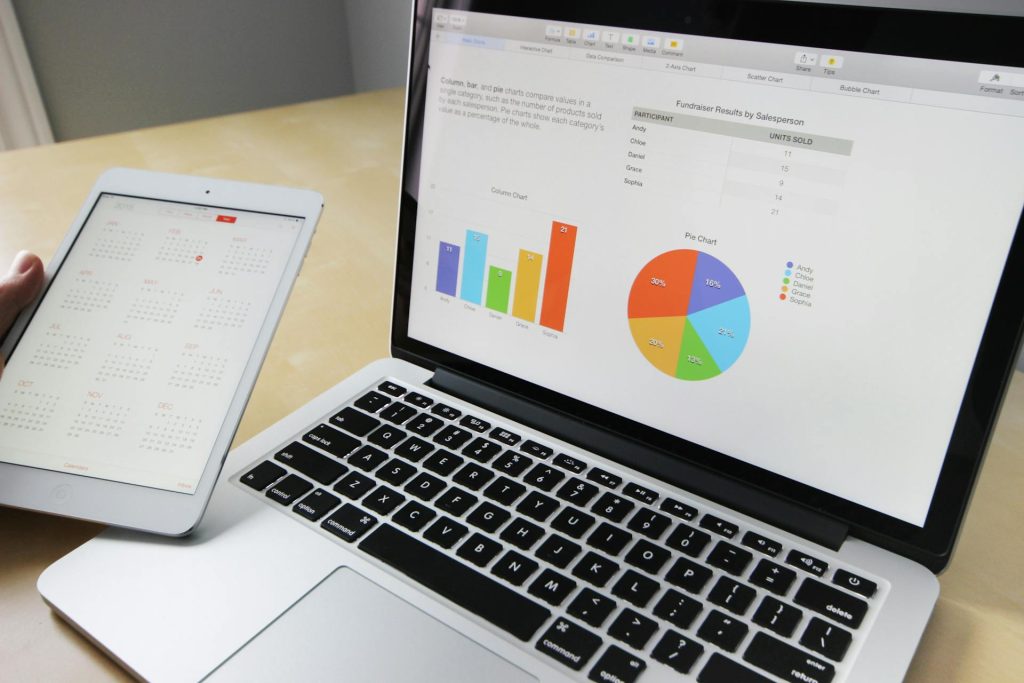Business Intelligence (BI) plays a crucial role in helping organizations make informed, data-driven decision making by analyzing historical and real-time data. It enables businesses to identify trends, optimize operations, and stay competitive. Traditional BI systems, while valuable, require manual data analysis and interpretation, leading to inefficiencies.
With the integration of AI in Business Intelligence, companies can now leverage automation and advanced analytics to improve decision-making. AI enhances BI by automating data collection, processing vast datasets, and delivering real-time insights, leading to more accurate and efficient business strategies.
Key Takeaways
- AI in Business Intelligence enables automated data analysis, reducing manual effort and improving accuracy.
- Predictive Analytics powered by AI helps businesses forecast trends and mitigate risks.
- AI-driven Business Intelligence Tools enhance decision-making with real-time, actionable insights.
- Machine Learning in Business identifies patterns in data that humans might overlook.
- AI-powered BI streamlines reporting, enhances security, and improves customer insights.
Role of Artificial Intelligence (AI) in Business Intelligence
AI has transformed Business Intelligence Tools by automating data processing and delivering real-time insights. Unlike traditional BI, which relies on static reports and manual interpretation, AI-Powered Analytics continuously learns from data to provide dynamic, intelligent recommendations.
Key advantages of Artificial Intelligence in Business intelligence include:
- Automated data processing for faster insights
- Enhanced accuracy in forecasting and decision-making
- Improved efficiency in reporting and analytics

Key Ways AI is Enhancing Business Intelligence
1. AI-Powered Data Analysis
AI processes vast datasets quickly, ensuring more accurate and timely insights. Machine Learning in Business identifies complex patterns and trends that may be missed in traditional BI systems. Real-time analytics enable proactive decision-making, minimizing risks and maximizing opportunities.
2. Predictive Analytics and Forecasting
Predictive Analytics helps businesses anticipate market shifts, customer behavior, and operational risks. AI-driven models analyze past data to make future predictions, aiding industries such as finance, retail, and healthcare. Companies leveraging AI in Business Intelligence can enhance customer behavior analysis and inventory management, improving operational efficiency.
3. Automated Reporting and Dashboards
AI streamlines reporting by generating automated dashboards and visualizations. Business Intelligence Tools powered by AI create customized, real-time insights, reducing manual reporting errors and saving time. Decision-makers can access up-to-date analytics with minimal effort.
4. Enhancing Decision-Making with AI
AI-driven insights support data-driven decision making, eliminating bias and reliance on intuition. AI-powered Decision Support Systems (DSS) provide business leaders with well-analyzed recommendations, enhancing strategic planning and execution.
5. AI and Natural Language Processing (NLP) in BI
AI-powered Natural Language Processing (NLP) allows executives to interact with BI tools using natural language. Virtual assistants and chatbots provide instant data insights, improving accessibility. Voice-enabled AI systems further enhance convenience for decision-makers.
6. Fraud Detection and Risk Management
AI identifies anomalies in financial transactions, preventing fraud and ensuring regulatory compliance. Machine Learning in Business enhances cybersecurity measures by monitoring transactions and detecting potential threats in real-time.
7. AI-Driven Customer Insights
AI analyzes vast amounts of customer data to improve personalization and engagement. Businesses use AI-Powered Analytics to optimize marketing strategies and enhance customer experience. AI-driven sentiment analysis helps companies understand consumer preferences and adjust offerings accordingly.
Challenges of AI in Business Intelligence
- Data Privacy Concerns: Ensuring secure AI implementation while handling sensitive business data.
- Integration Challenges: Merging AI with existing Business Intelligence Tools can be complex and require system overhauls.
- Need for Skilled Professionals: The demand for AI expertise in BI is growing, necessitating skilled personnel to manage and interpret AI-driven insights.
What is The Future of AI in Business Intelligence?
The future of AI in Business Intelligence is marked by continued advancements in Predictive Analytics, deep learning, and quantum computing. AI-driven BI will become more autonomous, reducing human intervention while improving decision intelligence. Businesses adopting AI-powered BI will gain a competitive edge through enhanced efficiency and data utilization.

Conclusion
AI is revolutionizing Business Intelligence Tools, making decision-making more efficient and accurate. Companies leveraging AI-Powered Analytics can optimize operations, predict trends, and improve customer experiences. To stay competitive, businesses must embrace AI-driven BI solutions.
Contact Align Solutions today for a consultation on implementing AI in Business Intelligence and unlocking the full potential of AI-powered BI tools.
Frequently Asked Questions
How Does AI Improve Data Accuracy in Business Intelligence?
AI significantly improves data accuracy in Business Intelligence (BI) by eliminating human errors, detecting inconsistencies, and ensuring data integrity through automation. Traditional BI systems often rely on manual data entry, which increases the risk of errors and inconsistencies. AI-driven BI platforms, on the other hand, use machine learning algorithms to validate, clean, and organize data efficiently.
One way AI enhances accuracy is through automated data cleansing, where it identifies and removes duplicate or outdated data, corrects formatting errors, and fills in missing values based on historical trends. AI-powered anomaly detection also helps in identifying discrepancies in large datasets, flagging unusual patterns that might indicate errors or fraud. Furthermore, Natural Language Processing (NLP) allows AI systems to interpret unstructured data (such as customer reviews or emails), extracting relevant insights with greater precision. By ensuring that businesses work with clean, reliable data, AI-powered BI tools enable more informed decision-making and reduce costly mistakes.
How Does AI Help Businesses Analyze Large Volumes of Data More Efficiently?
AI transforms the way businesses handle large datasets by automating data processing, recognizing patterns, and generating actionable insights at unprecedented speeds. Traditional data analysis methods often struggle with the growing volume, variety, and velocity of data generated by modern businesses. AI-powered BI tools address these challenges by leveraging machine learning, deep learning, and big data analytics to process vast amounts of structured and unstructured data in real time.
For example, AI can automatically categorize and segment data from multiple sources—such as CRM systems, social media platforms, financial reports, and IoT sensors—without the need for manual intervention. Advanced AI models can also detect correlations that human analysts might overlook, providing deeper insights into customer behavior, market trends, and operational inefficiencies. Additionally, AI’s ability to generate real-time dashboards allows decision-makers to monitor key performance indicators (KPIs) continuously, enabling them to make swift and data-driven business decisions. This ability to analyze complex data sets quickly and accurately gives businesses a competitive edge in today’s fast-paced market.
How Does AI-Powered Predictive Analytics Benefit Business Intelligence?
AI-powered predictive analytics enhances Business Intelligence by forecasting future trends, customer behaviors, and market changes with high accuracy. Unlike traditional BI, which primarily focuses on historical data analysis, predictive analytics leverages machine learning algorithms to recognize patterns and make data-driven predictions.
For instance, in sales forecasting, AI analyzes past purchasing behaviors, seasonal trends, and external market conditions to predict future revenue. In customer retention, AI identifies at-risk customers by analyzing engagement levels, transaction history, and sentiment analysis from reviews or support interactions. Similarly, in supply chain management, AI-driven predictive analytics can anticipate demand fluctuations, helping businesses optimize inventory and reduce operational costs.
By incorporating predictive analytics into Business Intelligence, organizations can shift from reactive decision-making to proactive strategies. This enables businesses to seize opportunities, mitigate risks, and optimize operations with greater confidence and precision.
How Does AI Enhance Real-Time Decision-Making in Business Intelligence?
AI enhances real-time decision-making in Business Intelligence by providing instant insights, automating responses, and reducing the time required for data analysis. Traditional BI systems often rely on batch processing, where reports are generated at scheduled intervals, leading to delays in decision-making. AI-driven BI solutions, however, process data continuously, enabling businesses to react to changing conditions in real time.
For example, AI-powered fraud detection systems in banking monitor transactions 24/7, flagging suspicious activities and blocking fraudulent transactions instantly. In e-commerce, AI analyzes customer behavior in real time to personalize recommendations, improving user experience and increasing sales. In logistics, AI-powered route optimization helps companies adjust delivery routes dynamically based on traffic patterns, ensuring faster deliveries.
By integrating AI into BI, businesses gain access to self-learning systems that refine their decision-making capabilities over time. This allows companies to stay agile, respond to market fluctuations, and maintain a competitive advantage in an increasingly data-driven world.
How Does AI-Powered Business Intelligence Improve Competitive Analysis?
AI-powered Business Intelligence improves competitive analysis by gathering, processing, and analyzing vast amounts of industry and competitor data more efficiently than traditional methods. In highly competitive industries, staying ahead requires access to real-time insights about market trends, consumer preferences, and competitor strategies.
AI enables businesses to track competitors by analyzing public data sources, such as news articles, social media activity, online reviews, and financial reports. It can detect shifts in pricing strategies, identify new product launches, and even assess brand sentiment using Natural Language Processing (NLP). AI also helps businesses identify market gaps by predicting emerging trends before they become mainstream, allowing organizations to innovate proactively.Furthermore, AI-driven sentiment analysis provides insights into how consumers perceive a brand compared to competitors. By analyzing customer feedback across multiple platforms, businesses can refine their marketing strategies and improve customer satisfaction. With AI-enhanced competitive analysis, companies can make strategic, data-driven decisions that give them a significant market advantage.


